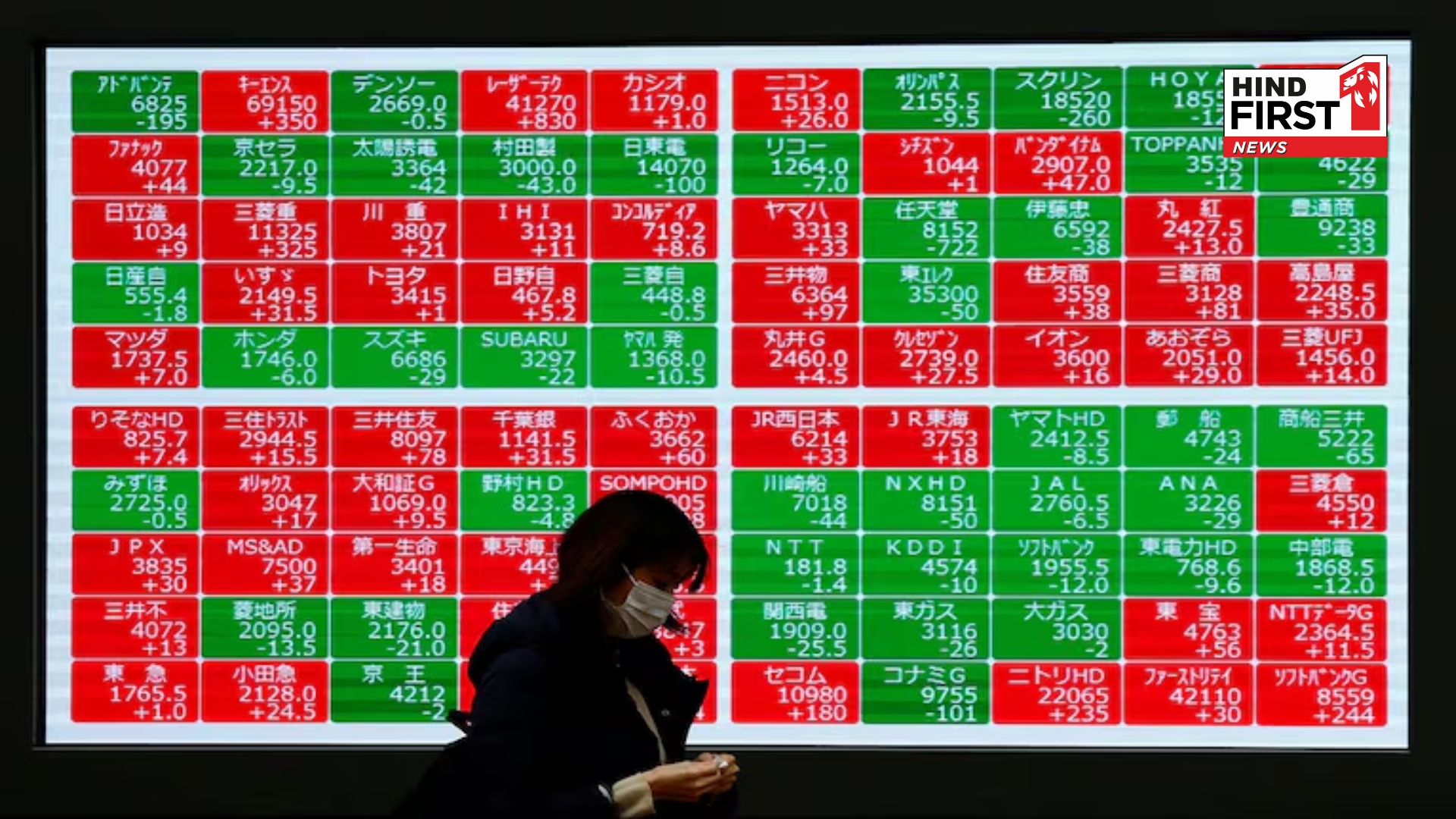Asian Markets Crash as US Slaps High Tariffs on Imports
Asian stock markets took a massive hit as the US imposed unexpected high tariffs on tech imports, especially from China and Taiwan. Investors turned to safer assets like gold and bonds, fearing global trade disruptions.
Asian markets fell sharply after the US announced steep tariffs on tech imports from China and Taiwan. The new tariffs, which exceed 30%, have pushed the total import levy to 54%, creating major concerns for global trade and supply chains.
Also Read: Weather Update: IMD Warns of Heatwave in Gujarat, Rainfall in South India
Tech Stocks Take a Hit
The impact was most severe on the tech sector. Nasdaq futures dropped 3.3%, wiping out $760 billion in value from major tech firms. Apple, which relies on Chinese manufacturing, saw its shares fall nearly 7%. The S&P 500 and European markets also recorded heavy losses.
Gold Surges, Oil Drops
Investors rushed to safe-haven assets, pushing gold prices to a record high of $3,160 per ounce. Meanwhile, oil prices dropped by over 2%, with Brent crude falling to $73.24 per barrel, signaling fears of a global economic slowdown.
Asian Markets in Turmoil
Japan’s Nikkei index slid 2.8%, hitting an eight-month low, while the Hang Seng Index in Hong Kong dropped 1.6%. South Korea’s Kospi fell 2%, and China’s stock markets opened on a weak note. Vietnam’s markets were hit the hardest, with its ETF losing more than 8% in after-hours trade.
Global Trade at Risk
The tariffs introduced by the US also extend beyond China. Japan faces a 24% tariff, South Korea 25%, and Vietnam a massive 46% levy. The European Union has also been hit with a 20% tariff, increasing concerns about economic instability.
Currency and Bond Market Reactions
China’s yuan dropped to its weakest level since February, while the Japanese yen strengthened as investors sought stability. US Treasury yields declined, reflecting expectations of slower economic growth.
What’s Next?
Experts warn that these tariffs could trigger countermeasures from affected countries, leading to higher global prices and increasing the risk of a recession in the US. If negotiations don’t ease the tensions, the economic impact could worsen in the coming months.
Also Read: Strong earthquake hits Japan’s Kyushu region, magnitude 6.0 on Richter scale


